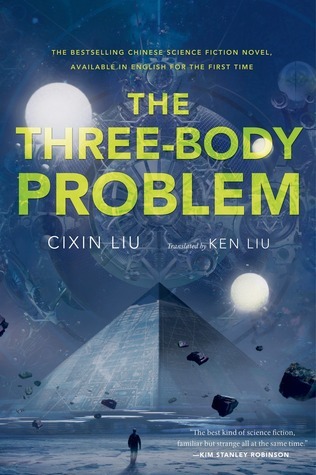The Three-Body Problem Book Summary
TL;DR
The Three-Body Problem intertwines humanity's struggles during the Cultural Revolution with an impending alien invasion, exploring themes of morality, choice, and existential risk.
What is The Three-Body Problem about
The Three-Body Problem, written by Liu Cixin and translated by Ken Liu, is a science fiction novel that opens against the tumultuous backdrop of China's Cultural Revolution. The narrative begins with a secret military project that sends signals into the cosmos, aiming to make contact with extraterrestrial life. This signal is intercepted by an alien civilization facing its own existential crisis, prompting them to consider invading Earth. The novel delves into the complex interactions between Earth’s factions: those who wish to embrace the alien civilization and those who advocate for humanity’s defense against the impending threat. Through its intricate plot, the book explores profound philosophical questions about humanity, morality, and the consequences of technological advancement.
The Three-Body Problem 8 Key Takeaways
Cultural Revolution as a backdrop.
The story begins during China's Cultural Revolution, highlighting the harsh realities faced by individuals, including persecution for intellectual dissent. This setting serves as a critical foundation, influencing the characters' motivations and decisions throughout the novel.
The military project to contact aliens.
A secret Chinese military project sends signals into space, aiming to establish contact with extraterrestrial beings. This act sets off a chain of events that lead to significant consequences for humanity.
Alien civilization in distress.
An advanced alien civilization, on the brink of destruction due to their unstable three-sun system, receives the signals from Earth and contemplates an invasion to secure their survival.
Formation of factions on Earth.
As news of the alien contact spreads, various factions form on Earth. Some view the aliens as saviors, hoping to align with them against humanity's flaws, while others prepare to resist the alien incursion.
Moral dilemmas and choices.
Characters face profound moral dilemmas concerning loyalty, survival, and the greater good. These choices often come at the expense of others' lives, prompting readers to ponder the ethical implications of such decisions.
The concept of the three-body problem.
The novel incorporates the scientific concept of the three-body problem, representing the chaotic interactions of three celestial bodies, which parallels the unpredictability of human and alien interactions.
Climactic confrontation.
The narrative builds towards a climactic confrontation between the Earth factions and the alien threat, leading to a broader discussion on humanity's place in the universe.
The unresolved fate of humanity.
The story concludes with an uncertain future for humanity, leaving readers to reflect on the implications of technological and moral advancements in the face of existential threats.
Top The Three-Body Problem Quotes
- "In the universe, there are no rules. Only survival and destruction."
- "The strongest of all the forces in the universe is the one that binds us together in conflict."
- "When faced with the unknown, fear is the only rational response."
Who should read The Three-Body Problem?
The Three-Body Problem appeals to fans of science fiction, philosophy, and history. Readers interested in complex narratives that challenge moral boundaries and explore humanity's future will find deep inspiration and thought-provoking insights within its pages.
The Three-Body Problem Best Reviews
- "A mind-bending exploration of physics and philosophy that challenges our understanding of humanity's place in the universe." - The New York Times
- "Liu's unwavering imagination and profound insights elevate The Three-Body Problem into the realm of modern science fiction classics." - NPR
- "A gripping narrative that combines hard science with deeply human themes, making it a must-read for fans of speculative fiction." - The Guardian
People also liked these summaries
The Three-Body Problem FAQs
What themes are explored in The Three-Body Problem?
The novel delves into themes of morality, human nature, the consequences of technological advancement, and the existential risks posed by contact with alien civilizations.
Is The Three-Body Problem based on real science?
Yes, the book incorporates real scientific concepts, particularly the three-body problem in orbital mechanics, to create a framework for its narrative and philosophical questions.
What impact has The Three-Body Problem had on science fiction?
The book has reinvigorated interest in science fiction within China and internationally, influencing a new wave of speculative fiction that addresses complex scientific and philosophical issues.
